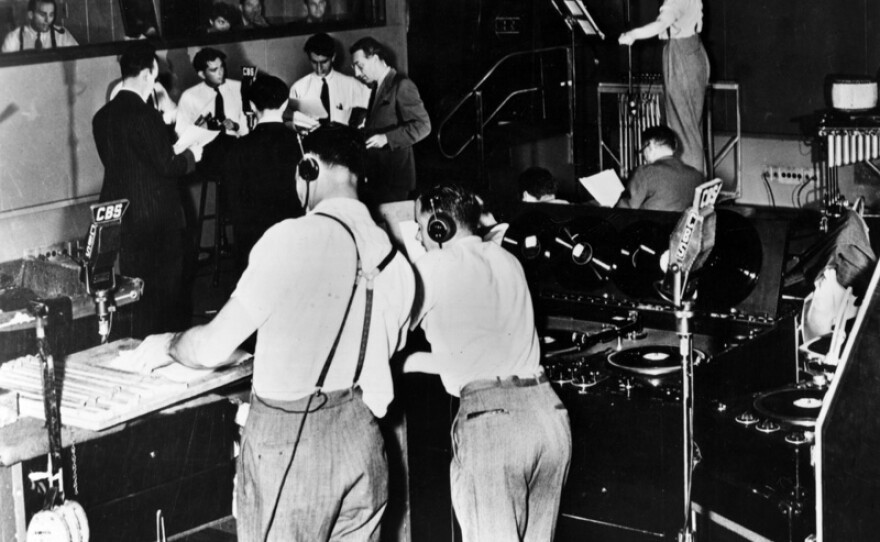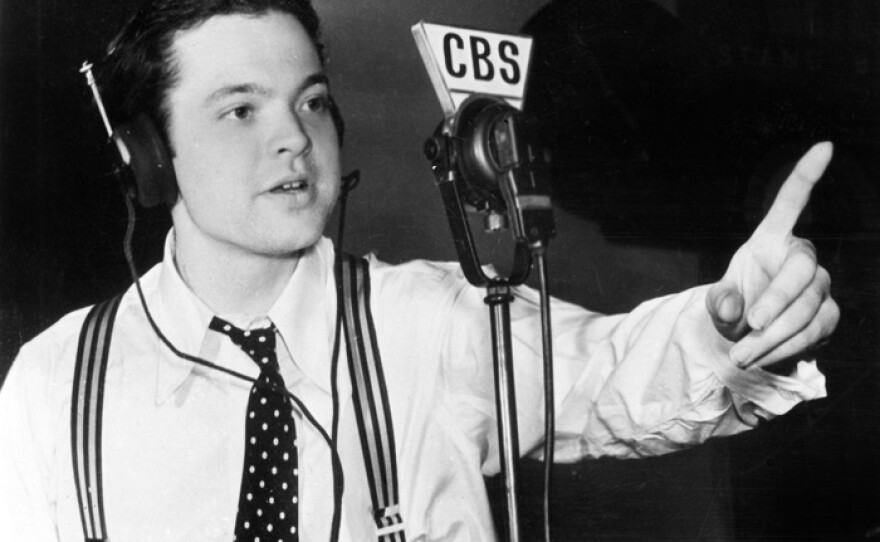On Oct. 30, 1938, just after 8 p.m. on the East Coast, the millions of Americans tuned to CBS Radio were treated to an unusual dramatization of H.G. Wells’s classic "The War of the Worlds," performed by 23-year-old wunderkind Orson Welles and his "Mercury Theater on the Air." Although most listeners understood that the program was a radio drama, the next day’s headlines reported that thousands of others — perhaps a million or more — were plunged into panic, convinced that America was under a deadly Martian attack.

Timeline: Breaking News of the 1930s
By the 1930s, the radio was becoming a staple in many American homes. For the first time, citizens did not have to wait until the evening paper to get the latest news -- radios brought breaking news right into people's living rooms. The airwaves carried talk about jobs and the economy during the Great Depression, but Americans also heard news about incredible advances in science and technology, celebrities of aviation exploration, and political changes afoot in Europe. View the timeline and read more about some of the breaking news events of the 1930s.
Photo Gallery
In the early 1900s, Martians were a hot topic in American popular culture. Are those canals on the red planet? How can we contact Martians? Up and coming actor/director/producer Orson Welles took advantage of the hype on October 30, 1938, when he broadcast H.G. Wells' "War of the Worlds" on his weekly radio drama program. View a gallery of related photos.
Film Quotes
“In an era when the public can still be fooled or misled by what is read online, in print, or seen on TV, 'War Of The Worlds' is a timely reminder of the power of mass media,” said AMERICAN EXPERIENCE Executive Producer Mark Samels.
“The ‘panic’ caused by the broadcast has become legendary,” said producer Cathleen O’Connell. “Using these newly discovered letters was a wonderful way to personalize the story. These rarely heard first-hand accounts, juxtaposed with the print media coverage of the day, help demonstrate the true impact of Welles’s radio drama.”

Timed to air in conjunction with the 75th anniversary of Welles’s notorious radio broadcast, "War Of The Worlds," produced and directed by Cathleen O’Connell, premiered on AMERICAN EXPERIENCE on Tuesday, Oct. 29, 2013.
Featuring interviews with film director and cinema historian Peter Bogdanovich, Welles’s daughter Chris Welles Feder, and other authors and experts, as well as dramatizations of some of the thousands of letters sent to Welles by an alternately admiring and furious public, "War Of The Worlds" explores how Welles’s ingenious use of the new medium of radio struck fear into an already anxious nation.
It took place on the night before Halloween, long known as Mischief Night. It began like any other ordinary Sunday evening, with millions of Americans tuned to their radios. But beneath the outward calm was a nation tense with worry and fear; the Great Depression refused to let up, and the threat of war in Europe loomed larger every day. Then, at 8:15 p.m., the voice of a panicked announcer broke into the dance music with a news bulletin reporting that strange explosions were taking place on the planet Mars, followed minutes later by a report that Martians had landed in the tiny town of Grover’s Mill, New Jersey.
Almost instantly, frantic listeners responded to the shocking news. Chicago newspapers were flooded with calls; in St. Louis, people gathered outside to discuss what to do about the “invaders;” in San Francisco, many feared that New Jersey had been laid to waste and that the Martians were heading west. Callers pleaded with the power company in Providence to shut off the lights so that the city would not be seen by the invaders.
Similar reports of panicked reactions came from Baltimore, Atlanta, Indianapolis, Memphis, Minneapolis and Salt Lake. At the epicenter of the event, New Jersey national guardsmen flooded armories with calls asking where to report. And in cities and towns across the country, people stopped a moment to pray — then grabbed their loved ones and fled into the night.
Seventy-five years later, "War Of The Worlds" explores this legendary but misunderstood event. With the CBS radio broadcast serving as its narrative spine, the film examines the elements that came together to create one of the most notorious media events in U.S. history: our longtime fascination with life on Mars; the emergence of radio as a powerful, pervasive medium; the eagerness of newspapers to disparage their radio rivals; the shocking Hindenburg explosion of 1937, the first disaster to broadcast live; and the brilliant enfant terrible Orson Welles, the director of the drama and mischief maker supreme.
Public reaction, forever immortalized in thousands of letters written following the broadcast, is dramatized in on-camera interviews, bringing to life the people who listened that night and thought it was a rip-roaring entertainment — or the end of the world. Saved by "Mercury Theater" member Richard Wilson, most of these letters had not been read since 1938. Donated to the University of Michigan in 2007 by Wilson’s estate, they were re-discovered by A. Brad Schwartz, a University of Michigan student who was writing his thesis on the broadcast.
AMERICAN EXPERIENCE is on Facebook, and you can follow @AmExperiencePBS on Twitter.
There Was No Stopping Orson Welles
"At one point during Orson Welles' "War of the Worlds" broadcast
Orson Welles' Press Conference
"Orson Welles could not imagine how anyone could believe that Martians had really landed in New Jersey. At the CBS press conference the day following his "War of the Worlds" broadcast





